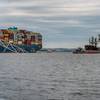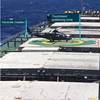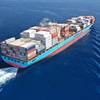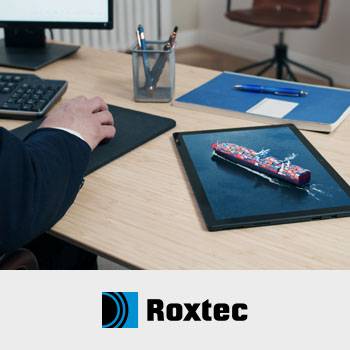Vickers PLC has recently made a major commitment to the marine market, most recently with its acquisition of Norwegian propulsion company Ulstein Holding for $476.8 million. Maritime Week contacted Vickers PLC CEO, Baron Paul Buysse for his take on this venture, as well as his inside strategies and goals for the future of the new company.
MW: Why the heavy investment in marine at this point in time? Where do you see growth opportunities in short-term? Long-term?
PB: After the divestment of Rolls Royce and Cosworth, Vickers plc was left with three strong engineering divisions: Defense, Turbine Components and Marine.
In the Marine division we have very strong brand names such as Kamewa, Rauma, Aquamaster, Brown Brothers and Michell Bearings. These businesses are mainly specialists in propulsion and positioning. Propellers, thrusters and water jets are the main products, which are distributed on a global basis. Kamewa is also intensively involved in technology and hydrodynamic research, and with Rauma we have a strong position in the offshore business.
When we reviewed the Vickers strategy in early 1998 we came to the conclusion that the specialist vessel sectors of the marine industry such as offshore, fast cargo and passenger vessels, and cruise will have a substantial growth pattern in the coming decade. We then scanned the leaders in these markets to identify who would make an ideal fit with Vickers Marine. It was the Ulstein Group, which came out of this survey as outperforming all the criteria we had set ourselves.
Given our combined position in, for instance, deep water offshore exploration and production, (undoubtedly one of the growth sectors of the industry), as well as in fast vessels, naval and cruise segments, (where our new Mermaid POD system is being particularly well accepted) we are convinced that long-term the marine industry will be successful for us.
MW: How do you feel about the direction of the maritime industry? How are you preparing Vickers to compete in markets, both good and bad?
PB: With the new combined Group, we are in an ideal position to offer our customers a technological partnership including the services of our unique hydro dynamic research center in Sweden. We will provide ship systems design, technological research, and a strong global service and repair network supported by a high quality manufacturing platform, which has benefited recently from important capital investments. We believe that Vickers is in an excellent position to compete in these markets where we already have strong customer relationships.
MW: Discuss the purchase of Ulstein - what are the strengths of the organization and how does it strengthen Vickers?
PB: Ulstein was roughly 75 percent complimentary to Kamewa and the other Vickers Marine businesses. Where the Vickers Marine companies focus more on research and advanced technological solutions for our customers, Ulstein was very active in expanding their global presence including the updating of the most modern standards in the manufacturing and development of their ship systems and design departments. Their recent acquisition of Bird-Johnson in the U.S. gives them a very strong presence on that continent as well, so integrating both businesses creates a true world leader.
MW: Discuss the melding of corporate cultures among the company's you've acquired.
PB: Obviously, there is not a surprisingly different way in which the two groups do business. Under Vickers, Kamewa and the other marine businesses focus very much on profitable growth and technology, where Ulstein was more active on commercial and service expansion. It relates a little to the strengths of both the Swedish and Norwegian culture. Bringing the two together makes, of course, a very powerful business culture.
So far, the eleven integration teams, composed of executives from all over the world, are mainly British, Swedish and Norwegian, and are performing remarkably efficiently and smoothly.
MW: What are the current strengths and weaknesses of your product and service line?
PB: The strengths of our product line are obviously that we can claim to be leaders in propulsion, positioning and active stabilization and have the highest technology in ship systems and design. Our new Mermaid POD propulsion system has had a remarkable and successful acceptance by the market who acknowledge these systems as the future in specific sectors of the market. I do not see major weaknesses for the moment but a lot of future opportunities; in particular, strengthening of our position in ship systems design and electronic controls will be areas we will concentrate on.
MW: What does the future look like for Vickers?
PB: The future strategy for Vickers concentrates around opportunities for the three divisions.
We see in Defense a movement for consolidation of companies who are active in land systems in Europe and expansion into a trend to look at lighter armed vehicles. As a dominant player in that sector of the industry, we will actively pursue opportunities to stimulate a sound consolidation process in the interest of our shareholders.
Sponsored Content
LR - Fit for 55: Managing compliance and optimising operations

Use Roxtec seals, services and software

Subscribe for
Maritime Reporter E-News
Maritime Reporter E-News is the maritime industry's largest circulation and most authoritative ENews Service, delivered to your Email five times per week









